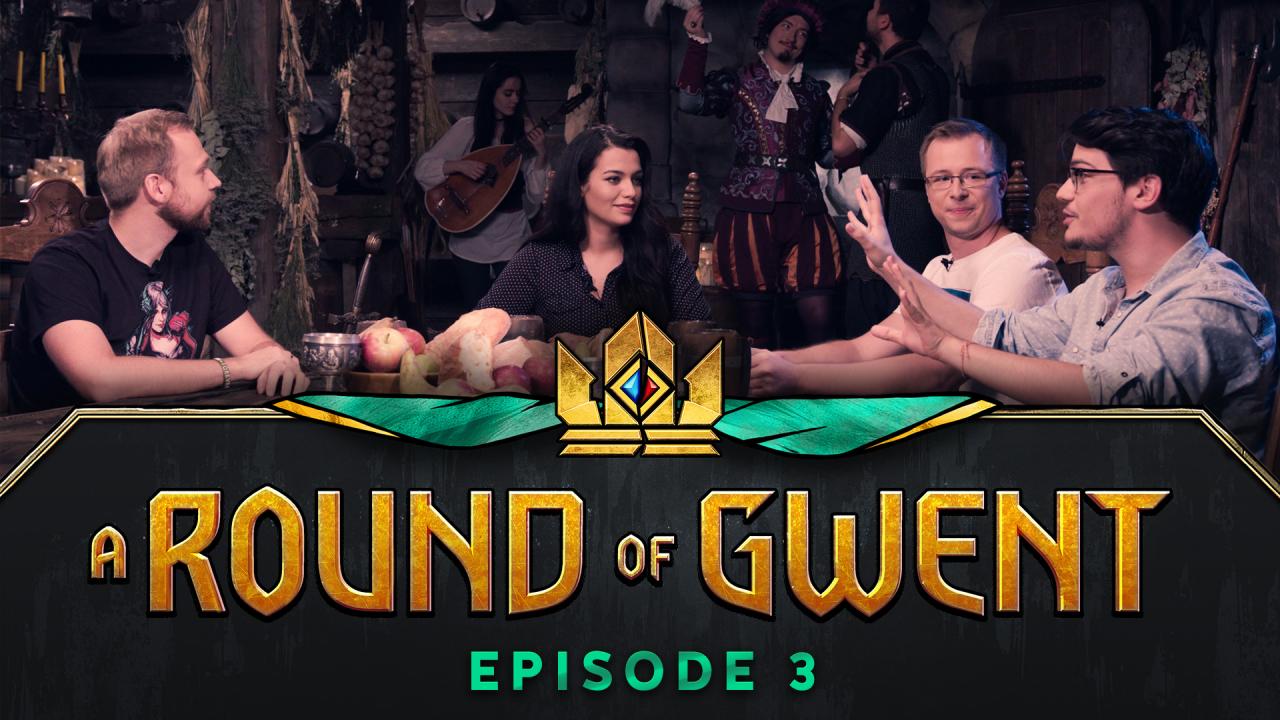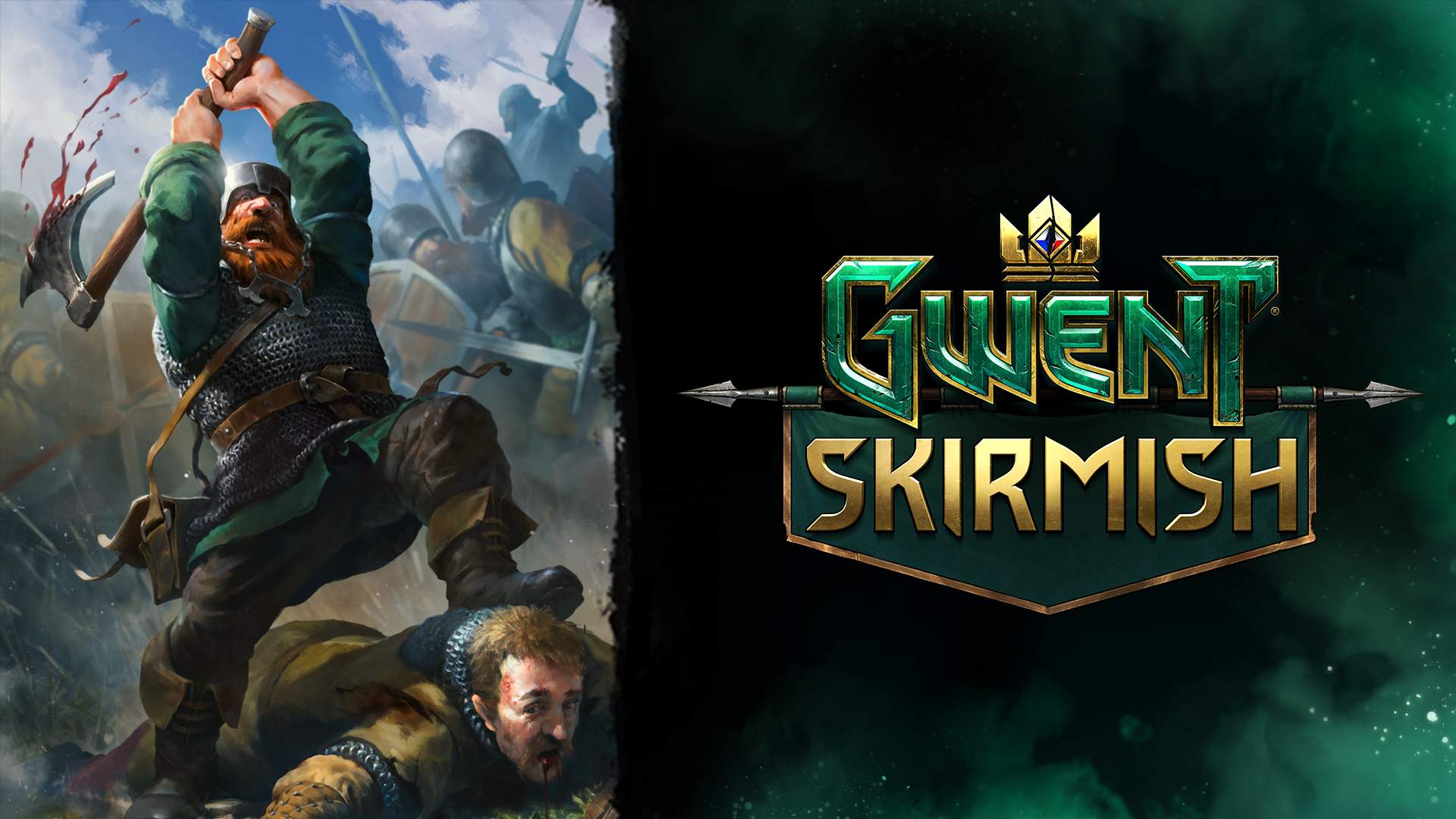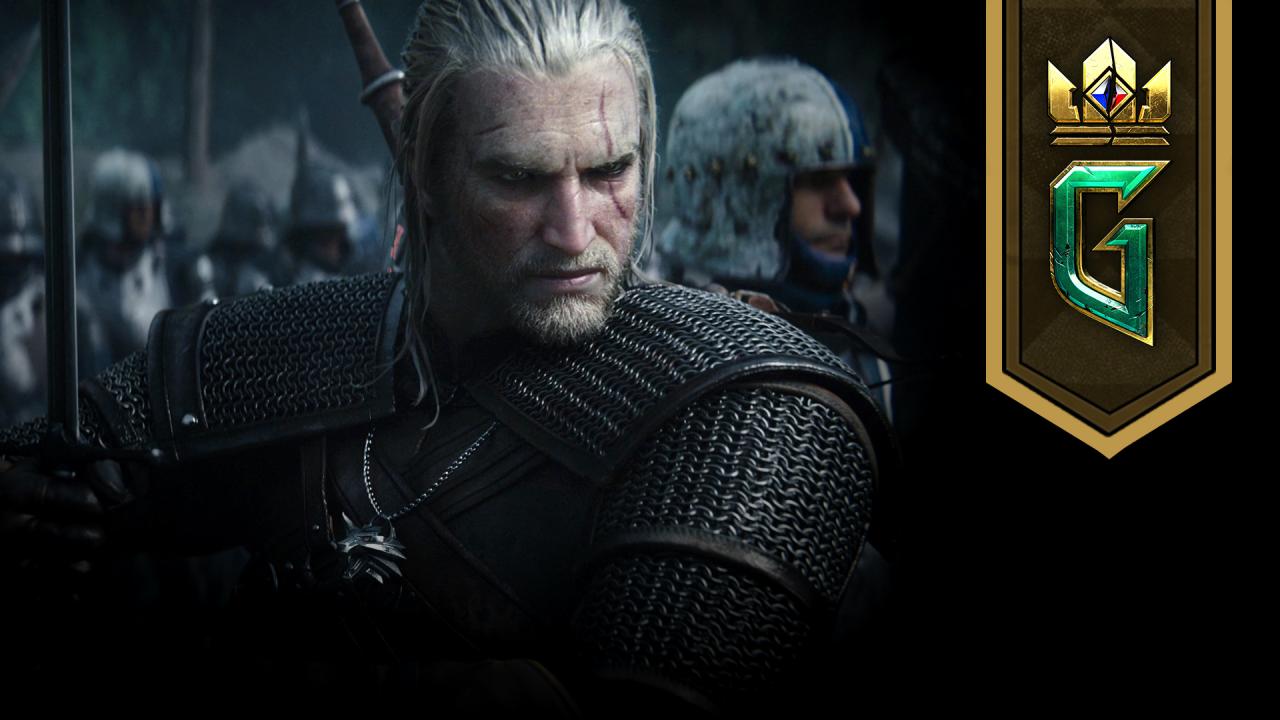Play Gwent
Leaders cards are powerful, but they're also frequently forgotten. Gwent is free to play now! In GWENT: The Witcher Card Game, gamers clash with their friends in fast-paced duels that combine bluffing, on-the-fly decision making and careful deck. GWENT is a card game of choices and consequences, where skill, not luck, is your greatest weapon. Pick a faction, build an army, and wage war against other players across multiple.
Play Gwent
Page Index
All Gwent Players in Witcher 3
As the Witcher 3 – Wild hunt game offers a big map with 3 big sections (Velen, Novigrad and Skellige Isles), you’ll basically have to explore all of it to find and collect all Gwent cards in the Witcher 3 game. We’ve listed all available Gwent players and merchants who sell Gwent cards for you below.
Gwent Players by Territory:
1. Gwent Players in White Orchand
Gwent characters in White Orchand:
- The merchant you saved from the griffin sells cards.
- Your first Gwent player’s sitting at one of the tables at the Inn.
- Elsa the innkeeper sells cards.
2. Gwent Players in Velen
Gwent characters in Crow’s Perch:

- The blacksmith in Blackbough
- The merchant in Blackbough
- The Bloody Baron in Crow’s Perch
- Yoanna, the blacksmith’s apprentice in Crow’s Perch
- Fergus Graem, the blacksmith in Crow’s Perch
- The quartermaster in Crow’s Perch
- The trader in lower Crow’s Perch
- The blacksmith in Lindenvale
- The merchant in Lindenvale
- The armorer in Midcopse
- The merchant in Midcopse
- The craftsman in Claywich
- The trader in Oreton
Gwent characters in Oxenfurt:
- The armorer in Mulbrydale
- The blacksmith in south-eastern Oxenfurt
- Stjepan the innkeeper at the Alchemy Inn in Oxenfurt
- The armorer in northern Oxenfurt
- The merchant at the market in northern Oxenfurt
- The dwarven herbalist in the hut north-east of Oxenfurt
Gwent characters in Novigrad:
- The priest of Eternal Fire near Elector’s Square on the northern island
- Marquise Serenity in the Passiflora brothel
- The alchemist at the crematory north of Oxenfurt Gate
- The merchant in the building behind the notice board
- The innkeep at the Nowhere Inn
- The loanshark south-west of Oxenfurt Gate
- The merchant across the street from the loanshark
- The innkeep at the Seven Cats Inn, east of Tretogor Gate
- The innkeep at Cunny of The Goose, south of the city
- Elihal, the tailor south of Tretogor gate
- The merchant at the market north-west of Tretogor Gate
- Olivier, the innkeep at Kingfisher inn sells a few cards
- Marcus T.K. Hodgson at the bookstore on Hierarch Square
- The blacksmith in Silverton, north-west of Hierarch Square
- The merchant across the road from the blacksmith
- The fish seller in the small market west of Hierarch Square
- Vimme Vivaldi, the owner of the bank
- The blacksmith on the fish market, south of the bank
- The innkeep at The Golden Sturgeon, west of Hierarch Square
- The dwarven herbalist south of the fish market, across the canal
- Zoltan at Rosemary & Thyme, near the Gate of The Hierarch (during quest)
- The merchant north of Glory Gate
- The madame at Crippled Kate’s brothel
- The merchant at the Scoiat’ael camp south-west of the city
3. Gwent Players in Skellige
Ard Skellig, central Island
- The blacksmith at Kaer Trolde
- The armorer at Kaer Trolde
- Jonas the innkeep at the New Port Inn in Kaer Trolde both plays and sells
- The merchant in Blandare
- The blacksmith in Arinbjorn
- The innkeep at the in in Arinbjorn sells and plays
- The blacksmith in Fayrlund
- The merchant in Fayrlund
- The herbalist in distress on the road north of Palisade
- The merchant in Fyresdal
- The smith in Fyresdal
- The smith in Kaer Muire
- The armorer in Kaer Muire
- The merchant in Holmstein’s Port
Hidjarsfell, eastern Island:
- The armorer in Larvik
- The merchant by the inn in Larvik
- The innkeep at the House of Warriors inn in Larvik
- The blacksmith in Larvik
Faroe, southeastern Island:
- The innkeep at the inn in Harviken
- The blacksmith in Harviken
Skellige, northeastern Island:
- The blacksmith in Urialla Harbor
- The innkeep in Urialla Harbor, who also has some cards for sale
- The armorer in Urialla Harbor
Spikerdog, southeastern Island:
- The innkeep at the inn in Svorlag will sell you cards and play against you
- The merchant by the sea in Svorlag
- The blacksmith in the north of Svorlag
All Gwent Merchants and Quests in Witcher 3
Play Gwent Online
Some Gwents cards in the Witcher 3 – Wild hunt can’t be won through Gwent cards, they’ll have to be purchased or you’ll be rewarded with Gwent cards during certain quests in Witcher 3.
Specific locations and characters to purchase Gwent cards at:
- Missable: Innkeeper, White Orchard
- Innkeeper, Inn at the Crossroads, Velen
- Trader, Crow’s Perch, Velen
- Quartermaster, Crow’s Perch, Velen
- Trader, Midcopse, Velen
- Trader, Claywich, Velen
- Missable: Olivier (innkeeper), Kingfisher Inn, Novigrad
- Marquise Serenity (innkeeper), Passiflora, Novigrad
- Innkeeper, The Golden Sturgeon, Novigrad
- Trader, Seven Cats Inn, Novigrad
- Innkeeper, Cunny of the Goose, Novigrad
- Stjepan (innkeeper), Oxenfurt
- Innkeeper, Kaer Trolde Harbour, Skellige
- Innkeeper, Urialla, Skellige
- Innkeeper, Arinbjorn, Skellige
- Innkeeper, Svorlag, Skellige
- Innkeeper, Harviken, Skellige
Specific quests that reward you with Gwent cards:
- Nilfgaardian Nobleman
- A Matter of Life and Death
- A Dangerous Game
- Shock Therapy
Looking for more information?
Still stuck with one opponent or did not find all Gwent cards yet? If your looking for more help to become the best Gwent player in the Northern realms check out our best Gwent strategies guide or find all best gwent cards listed here. Our list of all Gwent players in Witcher 3 and all Gwent quests may also help you to find every Gwent card in the Witcher 3 game.
Was this helpful? (417 votes, average: 4.16 out of 5)
This feature will teach you how to play Gwent, the collectible card game in CD Projekt RED’s The Witcher 3: Wild Hunt. We will cover basic strategies for winning Gwent matches, with tips, a breakdown of the different cards types and when to use them against your opponent. In addition, we’ll tell you how to collect all 199 Gwent cards to build the ultimate deck.
What is Gwent?
Gwent is a collectible card game Geralt of Rivia (you) can play at key locations in The Witcher 3: Wild Hunt; in between finishing Secondary Missions and Treasure Hunts. The game pits two armies against each other, with users playing different cards to gain an advantage over the other.
You’ll first play Gwent early on in White Orchard village. Go inside the tavern and speak to the scholar. This will begin the Gwent tutorial, and soon afterward, present an opportunity to play a match. Speaking to the scholar also presents Geralt with many Gwent side quests and opportunities to acquire different cards.
Throughout your adventure, Geralt will meet a variety of innkeepers and merchants who play Gwent. In addition, you will be able to take part in Gwent tournaments and regional competitions. In some cases, you will only play against specific non-player characters one time, which makes understanding the general flow of the game extremely important since you cannot afford to lose.
Many key characters in the game have their own Gwent cards.
Tips for Playing Gwent
- It’s OK to pass your turn, since doing this doesn’t admit defeat. Maybe you passed because you prefer to save cards for later in the match (remember, you only have 10). Maybe the other player cannot beat your hand. Basically, don’t feel shame in doing this most of the time. You can still win.
- Avoid playing the strongest cards in the early goings of the match. Again, you have 10 cards to play with.
- Use weather cards that will impact your opponent, and do your best to toughen up rows containing your own cards that will not get affected by this Weather card.
- Did you acquire a new and powerful card? Consider adding it to your deck immediately. Create the strongest deck possible. Fact is, you’ll need to do this ASAP if you intend to defeat the best Gwent players in The Witcher 3. Always seek to give your deck a boost.
- Ideally you want a relatively small amount of strong Neutral, Hero, Unit and Special cards in your deck. Get rid of low-level cards to increase the odds of getting a great hand during a game.
- If someone challenges you to a match, accept immediately. In some cases you will only receive one chance to compete against someone. Stop at every inn and tavern to play Gwent as much as possible and secure more powerful cards to improve your deck.
- Don't play your entire hand on the first turn. It's OK to lose the first turn because you have to win two turns to win a match. You need enough good cards to win the second turn. If your opponent wants to use most of his cards on the first turn, it means he has very little to work with afterwards.
- Have an even distribution of cards to cover every panel in case one panel gets knocked out.
- Pay close attention to your opponent's faction so you know what passive ability he has and can defend against it.
- The higher the attack value on your cards, the better. The highest attack wins, so there's no reason to have a card with one attack when you can replace it with a card in the same class with a higher attack value.
- Try not to have more than 22 unit cards in your deck so you have a higher chance of getting your best cards during the opening draw.
- Keep your faction's passive ability in mind when creating decks. For example, if you're playing under the Nilfgaardian Empire you win all draw games. That means you can aim for a draw game instead of always going for a win.
- If your total unit strength is below 100 in a 22 unit card deck, you will probably lose most matches after the first few hours playing.
Rules of Gwent

When a match begins, the game selects the starting player with a coin toss.
From there, each person receives 10 random Gwent cards pulled from their decks. You then discard two cards you don’t want and redraw in the hope of receiving two superior cards. You normally redraw once per match.
With the match underway, players put a Unit Card on the Gwent board in a combat row; you play one card per turn unless the card you placed contains an ability that allows more than one. Furthermore, you have the option to also play a Weather Card that may boost that Unit Card’s power.

Units Cards contain different amounts of Strength points that comprise your overall total. You win a round of Gwent if you have more points than the other player. A round concludes when both players no longer have cards or one person decides to pass on his or her turn and the other player has more points.
The first person to win two out of three rounds takes the match.
Gwent Decks
Gwent contains four possible types of decks. These include The Northern Realms, Nilfgaardian Empire, the Scoia’tael and Monsters. In each deck you will find a unique Leader Card, Unit Cards, Special Cards and Weather Cards. Finally, decks possess the following signature abilities.
Northern Realms: You will receive one additional card every time you win a round.
Nilfgaard: You automatically win rounds that end in draws.
Scoia’tael: This deck type will choose which player begins a round.
Monsters: You will have a random Unit Card on the board following a round.
Continue Geralt of Rivia’s epic adventure with Prima’s free walkthrough for The Witcher 3: Wild Hunt, then look at every Gwent card in the gameand make lots of Crowns.
Ready to stand against the Wild Hunt? Prima’s official strategy guide provides a comprehensive walkthrough to help make decisions, navigate the vast game areas and reach the ending you want. The collector's edition offers even more, with 32 pages of bonus content.
Types of Cards
Leader Cards: This character serves as the commander of your deck. Each Leader card has an ability players can use once per match and during his or her turn. Over time you’re able to strengthen a Leader card using variants Geralt will find, buy or earn. Consider it your ace in the hole, allowing you to make a comeback to win a round.
Unit Cards: These are more like the grunts of battle, allowing you to score lots of points. During play you will find three types of these cards, Close, Ranged and Siege. Understand what each card does, since they have the power to make played cards stronger.
Special Cards: These cards produce different effects on cards already on the game board. This includes those aforementioned Weather Cards, but don’t be too hasty. A weather card can negatively impact every single card in play, even yours! This may have serious consequences for your Strength points, though at least on the positive side, there’s a Weather card that eliminates previously played Weather cards.
The key here is to understand what each Weather card does. Fog wrecks Ranged Combat cards, Snow impacts Close Combat cards and Rain affects Siege cards. Play with caution.
Hero Cards: Consider these among the most powerful cards in your deck. Special cards have no affect, so consider playing these instead of Unit cards.
Neutral Cards: Think of Neutral cards as Hero cards, except they don’t fit into one of those four factions. Perfect example, Geralt of Rivia and the beautiful Yennefer of Vengerberg. Play these cards and you will likely boost other Gwent cards on the board.